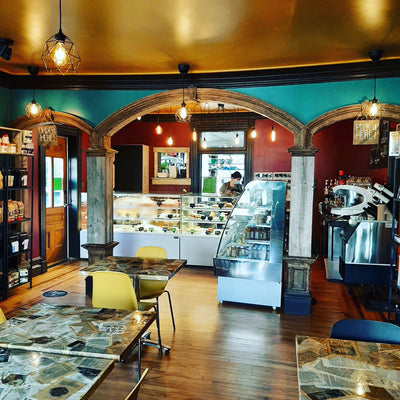New in
Swann's Way By Marcel Prous
Now available for the first time in the United States, a celebrated translation of the first volume of Proust’s In Search of Lost Time.
Swann's Way, the first of the seven volumes that constitute Marcel Proust's lifework, In Search of Lost Time, introduces the larger themes of the whole sequence while standing on its own as a brilliant evocation of the French Belle Époque.
Here we encounter Proust's narrator, restless and unfulfilled in middle age, his life weighing on him as a burden of things forgotten and things undone, until quite by chance he is brought to remember the world of his childhood, his clinging attachment to his mother, his dread of his father, summers in the country and the two walks his family regularly took, one by a great aristocratic estate, the other by the house of a certain Charles Swann, to whom a mystery was attached. A child's world and the world of adults the child can only begin to imagine unfurl before us, and Proust's pages spill over with incident and puzzlement, pathos and humor.
The novel then takes a further step into the past to tell of the goings-on at the Parisian salon of the bourgeois Verdurins, where social climbing and artistic accomplishment exist in incongruous and comic conjunction, and of Swann's infatuation with the courtesan Odette. Swann, man about town and familiar of royalty, is soon reduced to walking after midnight, unrecognizable to himself and to his friends, forlorn as a child awaiting a goodnight kiss, no thought in his head but love—and in Proust's universe there is no more terrible affliction.
James Grieve began his career as a translator of Proust in the early 1970s, driven by his dismay at how many readers deemed In Search of Lost Time to be too difficult for them to take on. Grieve's artful and celebrated version of Swann's Way—only now available outside his native Australia—shows that this is hardly the case. Proust's great narrative covers the whole gamut of human experiences and emotions, but to read it is to know joy.
Here we encounter Proust's narrator, restless and unfulfilled in middle age, his life weighing on him as a burden of things forgotten and things undone, until quite by chance he is brought to remember the world of his childhood, his clinging attachment to his mother, his dread of his father, summers in the country and the two walks his family regularly took, one by a great aristocratic estate, the other by the house of a certain Charles Swann, to whom a mystery was attached. A child's world and the world of adults the child can only begin to imagine unfurl before us, and Proust's pages spill over with incident and puzzlement, pathos and humor.
The novel then takes a further step into the past to tell of the goings-on at the Parisian salon of the bourgeois Verdurins, where social climbing and artistic accomplishment exist in incongruous and comic conjunction, and of Swann's infatuation with the courtesan Odette. Swann, man about town and familiar of royalty, is soon reduced to walking after midnight, unrecognizable to himself and to his friends, forlorn as a child awaiting a goodnight kiss, no thought in his head but love—and in Proust's universe there is no more terrible affliction.
James Grieve began his career as a translator of Proust in the early 1970s, driven by his dismay at how many readers deemed In Search of Lost Time to be too difficult for them to take on. Grieve's artful and celebrated version of Swann's Way—only now available outside his native Australia—shows that this is hardly the case. Proust's great narrative covers the whole gamut of human experiences and emotions, but to read it is to know joy.


